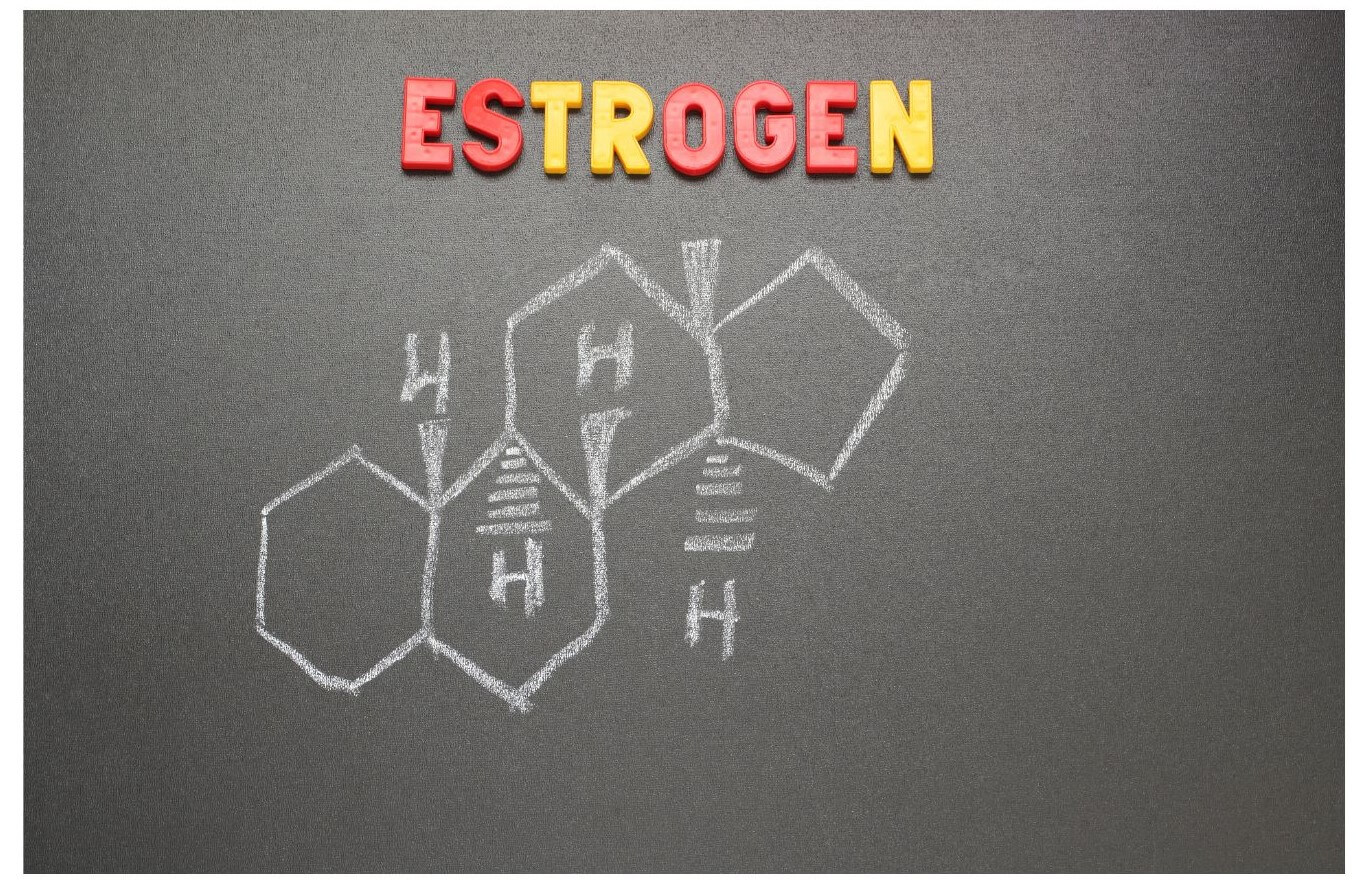Hormones play a vital role in every woman’s health and well-being, orchestrating countless processes in the body. And about 85% of all women will experience a hormone imbalance at one point in their lives. Despite how common they are, many women don’t connect their symptoms to a hormonal imbalance, and suffer in silence without finding answers.
So whether you’re grappling with mood swings, irregular periods, or energy slumps, know that these symptoms often have underlying causes that can be addressed. Holistic medicine offers an integrative approach to resolving hormone-related issues, addressing the root causes rather than just masking the symptoms.
For more support on your hormone journey, and personalized coaching, learn more about my community, the Superwoman Circle.
First, what does ‘hormone imbalance’ actually mean?
The term “hormone imbalance” is used a lot, but what does it actually mean? Hormones are chemical messengers that are produced by the endocrine glands and travel through the bloodstream to various organs and tissues in the body.
They regulate essential functions such as metabolism, growth, reproduction, mood, and more. When there is an imbalance in hormone levels, it means that one or more hormones are either too high or too low, disrupting the delicate balance of the body (1).
There are dozens of different hormones circulating throughout the body, so it’s common that an imbalance in one can affect another, resulting in a cascade of downstream effects.

How can I tell if my hormones are imbalanced?
It’s not necessarily a bad thing to experience hormone fluctuations, as there are times during life when it’s normal and expected. For example, changes in hormone levels occur naturally during puberty, pregnancy, breasting, and menopause. And daily changes in melatonin and cortisol are what regulate our sleep-wake cycle.
Nonetheless, some types of fluctuations can also cause unwanted symptoms. For example, too much cortisol can cause trouble sleeping and increased belly fat (2). And low progesterone, one of the main female reproductive hormones, can be a root cause of anxiety, sleep issues, and even infertility (3).
If your hormones are imbalanced, there’s a high likelihood you’re experiencing one or more hormonal imbalance symptoms.
Irregular Periods
A hormonal imbalance can cause changes in the menstrual cycle. Irregular periods are one of the most common hormone-related symptoms women experience. There are numerous reasons why a woman’s menstrual cycle can become irregular, including stress, changes in thyroid hormones, weight gain or loss, and hormonal imbalances.
A hormonal imbalance can lead to an overproduction or underproduction of estrogen and progesterone, which can cause irregular periods.
Polycystic ovarian syndrome, or PCOS, is one common hormone disorder that causes irregular periods.
Fatigue
Women with hormone imbalances often experience chronic fatigue, making it difficult to get through the day. This can be due to adrenal dysfunction caused by excess stress or other hormonal issues. Chronic stress can lead to adrenal fatigue, where the body’s stress response system is constantly activated and leads to feelings of exhaustion.
Read: How to Fix Adrenal Fatigue & Cortisol Dysfunction in Women
Mood Swings and Irritability
Fluctuations in estrogen and progesterone levels can make it difficult for women to regulate their emotions, leading to depression, anxiety, and irritability. This is particularly common during puberty, pregnancy, and menopause, when hormone levels are rapidly changing.
Mood swings also occur frequently just before your period, during what’s known as PMS or premenstrual syndrome. And despite how common it is to feel irritable or emotional during this time, if it’s having a significant negative impact on your life—it’s a sign of a deeper hormonal imbalance (5).
Related: Get Anxiety Relief by Toning Your Vagus Nerve
Acne
Hormonal imbalances can also lead to acne breakouts in women of all ages. When hormones such as testosterone and DHEA-S are too high, they can stimulate the sebaceous glands to produce excess oil, leading to clogged pores and acne (6).

Hot Flashes and Night Sweats
Common during menopause, these usually result from decreased estrogen levels. Estrogen helps regulate body temperature, so when it decreases during menopause, women can experience sudden and intense hot flashes and night sweats.
A hormonal imbalance can also cause hot flashes and night sweats in women who are not yet menopausal. This is often a result of low progesterone levels, which can disrupt the body’s natural temperature regulation system.
Weight Gain
Hormonal imbalances, particularly thyroid dysfunction, can make it challenging to maintain a healthy weight.
Hormonal imbalances can also contribute to weight gain, particularly around the belly and hips. Fluctuations in estrogen and progesterone levels can affect metabolism and insulin sensitivity, contributing to weight gain.
Insomnia
Hormones such as cortisol and melatonin regulate sleep, and imbalances can lead to sleep disturbances. High cortisol levels can make it difficult to fall asleep, while imbalances in melatonin can cause trouble staying asleep.
Waking around 3 am can be a result of a surge of adrenaline and cortisol triggered by low blood sugar. When your blood sugar drops a little too low overnight, your body tries to protect you by trying to raise it (7).
Up to 60% of women experience sleep issues during perimenopause and menopause (8). Hormones play a critical role in sleep quality. During perimenopause, several different hormones are in flux, which are often the culprit behind sleep issues.
Hair Loss
Thyroid imbalances, PCOS, and nutritional deficiencies can contribute to hair loss.
When hormones are imbalanced, you might notice dry or brittle hair if it’s your thyroid, or sometimes your hair will look sparse and thin. This can also occur if you have PCOS, a condition marked by excess inflammation and high androgens which often causes hair thinning especially around the crown.
Having a baby, menopause, and perimenopause can all cause a decrease in estrogen, which can cause hair loss.
Read more: Is Your Hair Loss Caused by Hormonal Imbalance?
Digestive Issues
Gut health and hormones are intertwined, with each affecting the other. That is, gut problems can lead to hormone imbalance, and hormone imbalance can worsen gut symptoms.
For example, an underactive thyroid can slow down digestion and reduce essential digestive components like enzymes and beneficial acids, leading to reflux and reduced nutrient absorption from foods (9).
At the same time, a healthy gut microbiome makes sure your body has what it needs to make thyroid hormone, like iodine, iron, and copper (10).

Low Libido
Many people think a healthy libido is only important if you want to have a baby, but you can tell a lot about your hormonal health by your libido and your interest in romantic activities. This is because the hormones that regulate your desire and attraction also regulate things like sleep, digestion, and your overall mood.
A low sex drive can be a common symptom of hormonal imbalances, particularly in women experiencing perimenopause or menopause. A decline in estrogen levels can lead to vaginal dryness, pain during intercourse, and reduced libido.
Hormones produced during arousal have been shown to play a role in longevity—how long you live—plus they can reduce stress and calm inflammation (11,12).
The Key Takeaway
Hormones directly affect virtually every part of the human body, which is why it is so crucial to avoid imbalances. However, achieving “hormone balance” isn’t as cut and dried as you might think. If you have a diagnosed hormone imbalance or disease caused by too much or too little of a certain hormone, you’ll want to work with a healthcare professional to find a treatment plan that’s right for you.


